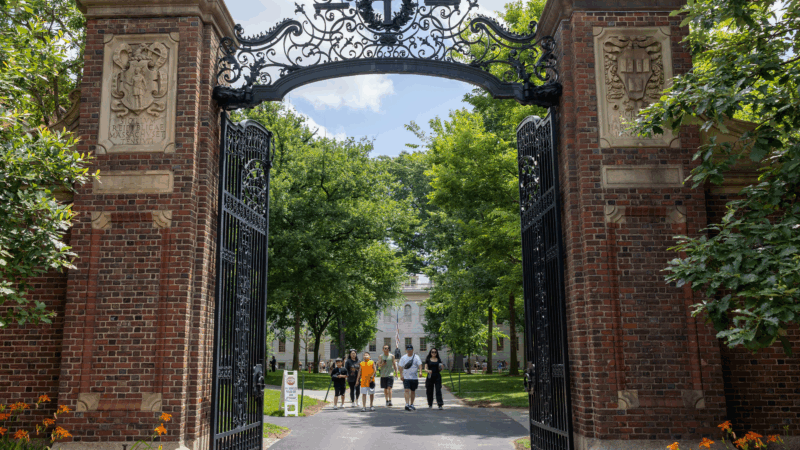Harvard and the Trump administration return to court over international students
Lawyers from Harvard University and the Trump administration will be back in federal court in Boston on Monday over Harvard’s ability to enroll international students.
On June 4, President Trump issued a proclamation preventing Harvard’s international students from entering the country, citing national security concerns.
Rather than disqualifying Harvard students from receiving visas, as other federal agencies have attempted to do, the presidential order marked the first time Trump has stepped in directly, using his executive powers to limit Harvard. His executive order says the university has failed to account for “known illegal activity” by students there.
“Admission into the United States to attend, conduct research, or teach at our Nation’s institutions of higher education is a privilege granted by our Government, not a guarantee,” the proclamation states.
The Trump administration has also argued that Harvard violated students’ civil rights, including failing to protect Jewish students, and that banning the school from enrolling international students is warranted.
The Ivy League school amended an existing lawsuit against the administration to ask a judge to block the order, calling the president’s actions “another illegal retaliatory step,” and claiming the government is in violation of the school’s First Amendment rights.
U.S. District Judge Alison D. Burroughs, an Obama appointee, issued a temporary block and on Monday will decide whether to extend it until Harvard’s lawsuit goes to trial.
Harvard enrolls about 7,000 international students, more than a quarter of the student body. While the legal battle plays out, Harvard has maintained that it will continue enrolling international students, based on the previous temporary order of the court.
“The court hearing is a very big deal for international students,” says Alfred Williamson, who is from Wales in the United Kingdom, and just finished his first year at Harvard. “The part that is most frustrating and scary is that there’s nothing we can do to influence the outcome. We just have to sit here and wait and cross our fingers.”
The battle over international students is one of several fronts in a running campaign by the administration, which has also cancelled grants and threatened Harvard’s tax-exempt status.
“The fight seems far from over,” says Williamson, who faces uncertainty over what his sophomore year will look like and whether he’ll be able to attend Harvard. “As international students we can’t really see the end of it.”
Alabama man, on death row since 1990, to get new trial
The U.S. Supreme Court on Monday declined to review the summer ruling from the 11th U.S. Circuit Court of Appeals. The decision paves the way for Michael Sockwell to receive a new trial.
Supreme Court blocks redrawing of New York congressional map, dealing a win for GOP
At issue is the mid-term redrawing of New York's 11th congressional district, including Staten Island and a small part of Brooklyn.
Video of Clinton depositions in Epstein investigation released by House Republicans
Over hours of testimony, the Clintons both denied knowledge of Epstein's crimes prior to his pleading guilty in 2008 to state charges in Florida for soliciting prostitution from an underage girl.
Some Middle East flights resume, but thousands of travelers are still stranded by war
Limited flights out of the Middle East resumed on Monday. But hundreds of thousands of travelers are still stranded in the region after attacks on Iran by the U.S. and Israel.
‘Hamnet’ star Jessie Buckley looks for the ‘shadowy bits’ of her characters
Buckley has been nominated for a best actress Oscar for her portrayal of William Shakespeare's wife in Hamnet. The film "brought me into this next chapter of my life as a mother," Buckley says.
How, who, and why: NPR flips its famous letters to defend the right to be curious
NPR is standing up for the public's right to ask hard questions in a national campaign dubbed "For your right to be curious." At NPR's headquarters, on billboards in New York City, Chicago, and Washington, D.C., and across social media, NPR's three iconic letters transform into "how," "who," and "why" — a bold declaration of its commitment to fight for Americans' right to ask questions both big and small.







